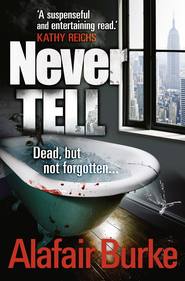По всем вопросам обращайтесь на: info@litportal.ru
(©) 2003-2024.
✖
Long Gone
Автор
Год написания книги
2018
Настройки чтения
Размер шрифта
Высота строк
Поля
“Not everything’s about money, Jeff.”
Had she been seated next to her father, she would have nudged him under the table. Poor Jeff. She was certain he would have preferred to be anywhere other than the “celebratory family dinner” her mother had been determined to organize, but he had insisted on accompanying her after Lily had come down with a stomach flu.
Alice had been careful to engineer the seating arrangements at the round table: her father next to her mother, then her, then Jeff, and then Ben was to be the buffer between Jeff and her father. But thanks to that empty fifth seat, her dad had a clear shot at Jeff. And, as always, he’d taken it. And, as usual, Jeff deflected the bullet.
“Of course not, Mr. Humphrey.”
Alice jumped in before the discussion could escalate. “It’s actually a good thing my friends turned out, or the place wouldn’t have looked so full. We had pretty good publicity leading up to the opening—mentions in Time Out and New York magazine—but about half of the crowd were people I know.”
“Gee, I wonder how all your friends heard about it,” Jeff said with a smile.
She filled her parents in on the joke. “I sort of buried every person I’ve ever met with Evites, Facebook alerts, and every other form of spam so they’d at least show their faces.”
“That’s what it’s all about,” her mom said. “You’ve got to create that opening buzz. It’s just the same with movies, you know.”
Alice could count on a single hand the number of acting jobs her mother had lined up since Alice’s birth, but the film industry was and would always be the lens through which Rose Sampson saw the world. This was, after all, a woman who’d stayed locked in her bedroom for a week when a much younger Alice had finally stopped trying to be a star herself.
“I only sold a couple of prints tonight, but I was checking online orders, and we were about to cross into the triple digits when I left the gallery.”
Jeff’s eyes widened above his highball glass. “You’re kidding me.” Coming off her adrenaline high from the successful opening, she’d been so busy gushing to Jeff in the cab about the various socialites who’d shown up to the gallery that they hadn’t had a chance to talk numbers.
“Is that a lot?” her mother asked.
“You saw the pictures, Mom. Hans Schuler’s a little off the beaten path.”
“Good,” her father interjected. “Too much art is sterile and commercialized. If you’re representing fresh work, you can be proud regardless of whether you make a single dollar.”
Now her father was proud. He hadn’t actually seen the crap she was pushing, and couldn’t resist that dig to Jeff about art not being measured by money, but all he needed to hear was that the photographs were weird, and suddenly he was on board. This from the man who watched his opening weekend grosses like a hawk, even as he insisted that studio executives were hacks who cared only about their bottom line. Her father wasn’t consistent, but he was definitely predictable.
Predictable enough that she foresaw his response when the waitress interrupted to ask whether Mr. Humphrey preferred to wait for the last member of his party before ordering.
“If we waited to eat every time my son ran late, the whole family would have starved by now. Go ahead, everyone. Let’s order up.” Her father had spent so much of his life in charge of other people on set that he refused to tolerate tardiness, especially from his flaky son, Ben. It probably did not help that everyone at the table was imbibing while he sipped club soda, twenty-five years after he quit drinking (but not craving, as he liked to say). “I’ll have the duck,” he announced, handing the waitress his unopened menu. “Get the duck, Jeff. They do a great duck.”
Just as she knew that the family dinner would be at Gramercy Tavern, the restaurant her father always insisted on when he came to “her neighborhood” (meaning south of Thirty-fourth Street), she knew he’d order the duck. She also knew that, even though Jeff would have preferred beef, tonight he would opt for duck.
She wished she could persuade Jeff to stop trying to appease her father. She wished she could explain why her father would always be hard on him. But any discussion about her father’s disapproval of Jeff would inevitably lead to a discussion about the history of Jeff’s relationship with her, and that might end the friendship that meant so much to her.
After the waitress departed, Alice continued calculating her sales results for the day. “We’ll have brought in over seventy thousand dollars by morning. I have to admit, I thought Schuler was full of it, but maybe he’s onto something. The online orders came in from all over the world. Instead of targeting the tiny pool of customers who happen to show up in a New York City gallery, anyone living anywhere can buy this stuff. Granted, I don’t understand the appeal of it, but—”
Her mother tipped her pinot grigio in Alice’s direction. “To each his own, right?”
She noticed a small groan from her father and felt like she was thirteen years old again. She’d been about that age when she’d first learned to recognize—to label—the tension that had always existed between her parents. Her mother’s resentment of her father’s successes. Fights that coincided with his time spent on location. Her father’s barely veiled boredom as her mother filled him in on the mundane details of days he missed from his family. His snorts—like the one she’d just heard—when her mother wasn’t sufficiently creative in her choice of words.
With any other couple, she might have wondered why the two of them bothered to remain married. But she always assumed—or maybe, as their daughter, she’d just wanted to believe—that there was some sticky bond of love between them that outweighed all of the apparent imperfections. The rumors about her father? She’d always written them off as precisely that. Her mother trusted him, and therefore she had too.
But they weren’t rumors. She’d learned that last year. And yet Mom still didn’t leave. Someone had to say something to him. And so Alice had been the one. She had finally cut the cord, at least as much as she could without destroying her mother. Then she’d lost her job at the Met. Now she’d finally landed on her feet and didn’t know whether to see her father’s absence from the show as punishment or exactly what she had asked of him.
She took another sip of her vodka martini, allowing the alcohol to warm her stomach, feeling it form a fuzzy cloud around her face.
Ben never did show up that night. It would be two more days before she realized why.
CHAPTER ELEVEN
Joann could not help but feel she was somehow being punished for every mistake she had ever made as a mother. As a woman. As a person.
The last fifteen years hadn’t always been easy. Pregnant at twenty-one by a guy who was not only uninterested in being a father, but who proved to have no idea what he wanted out of life even for himself. Working retail as the mother of a toddler, getting laid off for missing hours every time her kid was sick. Taking part-time classes at the university, then juggling full-time waitressing once Becca started school. A college degree and the hospital job had given her sick time, benefits, and all the security that came with the territory, but it had taken years of saving, a housing market crash, and a lot of luck before she’d finally been able to buy them this house.
But as much as she had managed to improve life for the Stevenson girls, she had never rectified her original sins. In fact, she had only managed to compound them as her daughter got older and began to ask the inevitable questions a child asked of a single parent. Lineage. Biology. History. Pedigree. As if the desire for answers were ingrained in the very DNA whose origins we could not help but explore.
It was bizarre to watch this police officer—this stranger—roam room to room through the home she’d worked so hard to create. She could see him making judgments with every observed detail. The boxes of sugary cereal on the linoleum kitchen counter. The crappy DVDs on the living room shelves, mostly two-star romantic comedies and buddy action flicks, far outnumbering the books, declaring she was no intellectual. The clutter. The piles of papers. Unopened mail.
Tidying up had been the last thing on her mind since Becca had gone … missing. She could still barely stand to imagine that word and its significance. So she hadn’t straightened the place. As a consequence, she now wondered whether this cop had irreparably categorized her as one of “those” parents.
She would have expected the detective to be older. Dover, New Jersey, was a small town, the kind of place the movies would depict with a seasoned sheriff. Grizzled, even. With a southern accent, no matter the actual locale.
This particular cop was younger than she was. Probably in his early thirties, even though he could pass for his twenties in a different context. When had she gotten so old that a police detective investigating a missing child could be younger than her?
“How did Becca feel about your having company that night?”
“I told you, Officer Morhart. I mean, Detective.” She looked at the business card he had handed so purposefully to her upon his first polite step through the door. Jason Morhart. Detective Sergeant. Town of Dover Police Department. “Becca didn’t know.”
He lowered his gaze. She was now not only a slut but a lying liar. The kind of woman who snuck men into her bed without even noticing whether her own kid came home for the night.
No, she had no doubt how the situation looked to this fair-haired, blue-eyed, strong-jawed officer. The teenage child of a single mother. The recent dip in Becca’s grades. Attendance problems at school. The phone call from the guidance counselor, asking whether there had been any changes in Becca’s home life. Joann, struggling to balance a full-time job with motherhood and a new boyfriend. The teenage girl missing just as the boyfriend spent his first night in the family home.
“You sure there’s not someone else your daughter might be staying with? Maybe she just needed a break.”
In other words, you’re one fuckup of a mother, and your daughter finally made a run for it. Suck it up or go cry to your boyfriend, lady.
But Joann knew the truth behind the stereotypes that were dominating this police officer’s conclusions.
Joann had already called every last one of Becca’s friends. According to them, she’d gone to the library that morning, just as expected, to finish her chem lab report with her class partner, Joel. Went to Sophie’s house afterward, just as she told Joann she would. The girls met Sophie’s boyfriend, Rodney, at the Rockaway Town-square mall to check out the new gadgets at the Apple store, then headed back to Sophie’s again to pick up Becca’s backpack. Sophie, whose parents (unlike Joann) could afford to buy their daughter a car, offered Becca a ride, but Becca (as was often the case) wanted to burn a few calories with the five-block walk. No one had seen Becca since.
These were the facts Joann knew. Not only knew, but trusted. Would swear by. Because Joann, unlike this cop, had known Sophie Ferrin for three years. Had carpooled her around through junior high. Had stayed up in her pajamas with her and Becca for late-night gossip sessions over chocolate-chip cookie dough. Joann, unlike this cop, knew Sophie wouldn’t lie to her.
Becca had been frustrated, even angry, at her mother for failing to give her the thorough explanations she was looking for about her childhood. About her very existence. And she had gone through a troubled few months as a result. And Joann—as always—had more on her plate than any one person should have to handle alone. But Joann, unlike this cop, knew something else: she and Becca had a bond.
Sure, they were mother and daughter, but they were also friends and confidantes. Becca would know how the sight of her empty bed in the morning would affect Joann. She would know that just one look would devastate her. Break her to the core.
As angry as Becca could sometimes be with her mother, Joann knew her daughter—her best friend, her everything—would never voluntarily destroy her this way.
Joann had made mistakes as a mother, there was no question. And she would work every last day of her life to remedy them, if given a chance. But at that moment—as she watched a police officer run his fingertip along the edges of the baby photos on her mantel—all she could do was close her eyes and pray that she be the one punished—not her baby, not her Becca.
Please, God, not my precious Becca.
CHAPTER TWELVE
Alice blew hot breaths into her cupped fists, trying to warm her fingers before they numbed. With a puff of warmed air trapped between her hands, she’d then rub her palms together before balling them into her coat pockets once again. She’d been in this rotation system since she stepped out of the gallery ten minutes earlier—warm breaths, brisk palm-rub, coat pockets—but there was no curing the chill that had already set in.








